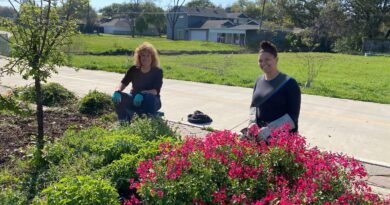What DISD Does About Mental Health
A cluster of suicides in the 1980s in Plano ISD drew national attention and spurred Dallas ISD to act. The Office of Psychological and Social Services now a mixture of prevention and intervention care to DISD.
“We saw that if this was happening to them, it would happen to us,” said Connie Rodriguez, director of PSS.
Her team consists of psychologists, licensed specialists in school psychology, and licensed master social workers. The office also places trained counselors on every campus to provide direct services, Rodriguez said.
“We have a district policy that we require any person on campus that has reason to worry about a person, they are required to talk to a counselor who can assess the kid,” she said. “In every instance of risk assessment, parents are asked for approval — for high risk case, we refer to area services.”
DISD was already training all teachers and counselors to be aware of kids at risk and notice the signs a student might be suicidal, but they are also now required to do so by law. Governor Greg Abbott signed HB2186 on June 19, 2015.
PSS staff are stationed across the city to immediately be able to respond to high risk situations, such as when suicidal thoughts have been expressed, and meet the family there to help assess what steps need to be taken and navigate the process of care. The team will help the parents know what paperwork is needed and what phone numbers to call, according to Rodriguez.
“We’ll provide the care if we have to, because suicidal issues are long term,” she said. “We make sure they get the level of support they need.”
Department staff follow up with the families after they have been referred to outside treatment to establish a “safety plan,” Rodriguez said.
“We’re trying to prevent another crisis so they don’t have to go on the roller coaster of emotion again,” she said.
Rodriguez urges other school districts and schools to be proactive.
“Plan for the fact that you have suicidal kids on campus,” she said.
Should a death or trauma occur, schools are prepared to offer “psychological first aid to help them [students] get back on track and prevent future tragedy related,” Rodriguez said.
When teaching and educating schools about crisis management, she says her department stresses that grief is a normal process, but it’s how it’s handled and normalized that’s important.
“We’ve been blessed with not having any of what appears to be cluster suicides, which is where the postvention services come in,” Rodriguez said.
In an effort to prevent crisis situations, since 1994, the district has partnered with Parkland Health and Hospital System to offer both mental and physical health care to DISD families. There are 11 centers around Dallas, including ones at Edward H. Cary Middle School and Emmett J. Conrad High School.
The centers are staffed with licensed counselors, psychiatrists, and social workers, Rodriguez said.
“We try to work with the whole child, not just piecemeal [care]. Medical or physical issues can impact mental health, and mental health can affect the physical,” she said. “In the long run, your time and money is better spent focusing on the whole child.”
Call (972) 925-8050 if you want a speaker or need help from Rodriguez or her team.








